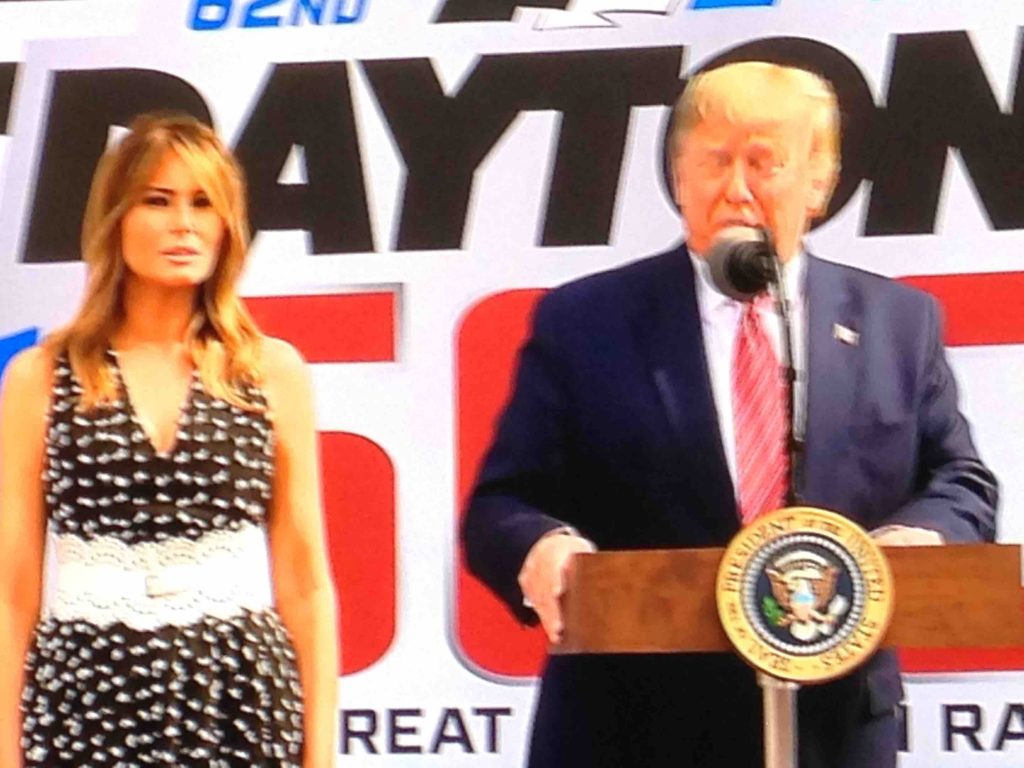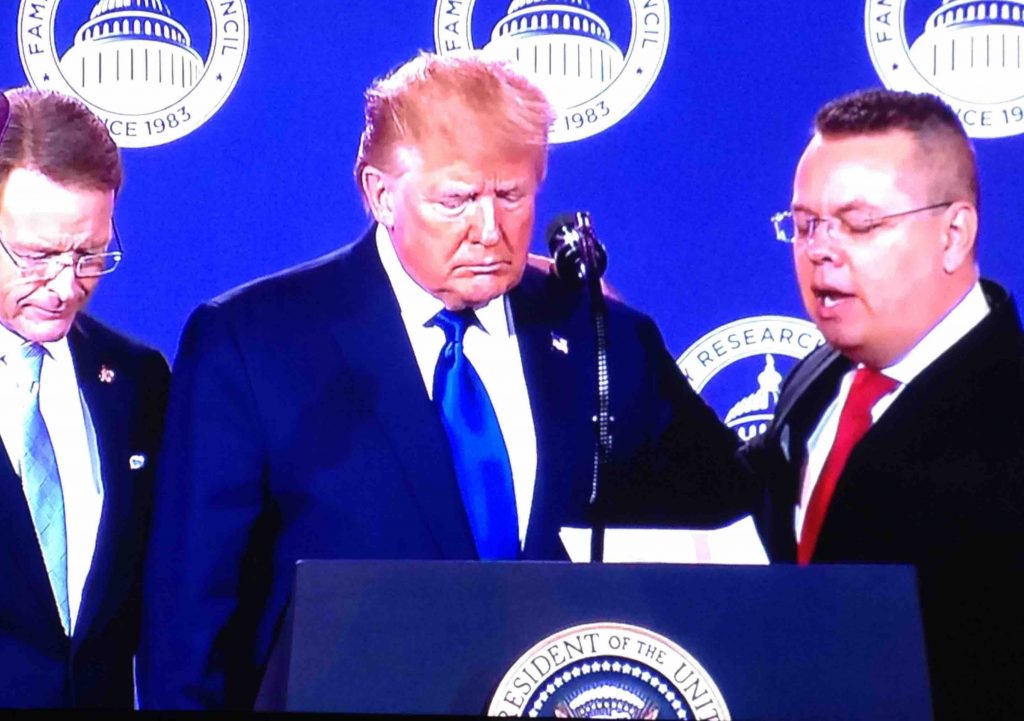Felonious aid and abet theft of tax returns, felonious disclosure of tax information, and felonious receiving stolen property, three Federal Crimes

Felonious aid and abet theft of tax returns, felonious disclosure of tax information, and felonious receiving stolen property, three Federal Crimes
As of September 2020, The New York Times, by its own admission on a website under its name, has committed acts which, if unauthorized, appear to be within the description of three federal crimes in regards to its reporting on the President’s tax return. The crimes are felonious disclosure of a tax return, felonious aiding or abetting in the stealing of the tax returns, and felonious receiving of stolen property. You can evaluate these crimes by comparing the statutes with the Times story.
The property was stolen as the Times states ‘The tax returns that Mr. Trump has long sought to keep private.’ This indicates that both the return release or sharing with the Times was unauthorized by President Trump.
The Times aid and abet the theft, as the Times states ‘The Times declined to provide the records, in order to protect its sources.’ This indicates the Times has records and sources who committed the theft, and is protecting them for the profit of the Times. The Times wants readers and sells advertising based on readership.
The Times disclosed information from the tax return, as the Times states ‘paid $750 in federal income taxes, *** paid another $750 ** paid no income taxes.’ This indicates specific disclosure from the tax return.
So here are specific quotes from the NYTimes.com and the Federal Statutes from the U.S. Code.

https://www.nytimes.com/interactive/2020/09/27/us/donald-trump-taxes.html
“THE PRESIDENT’S TAXES
LONG-CONCEALED RECORDS SHOW TRUMP’S CHRONIC LOSSES AND YEARS OF TAX AVOIDANCE”
“The Times obtained Donald Trump’s tax information extending over more than two decades, revealing struggling properties, vast write-offs, an audit battle and hundreds of millions in debt coming due”.
Russ Buettner, Susanne Craig and Mike McIntire
“Donald J. Trump paid $750 in federal income taxes ***. In his first year in the White House, he paid another $750. He had paid no income taxes at all ***”
“The tax returns that Mr. Trump has long fought to keep private tell a story fundamentally different from the one he has sold to the American public. “
“They comprise information that Mr. Trump has disclosed to the I.R.S., not the findings of an independent financial examination.”
“In response to a letter summarizing The Times’s findings, Alan Garten, a lawyer for the Trump Organization, said that “most, if not all, of the facts appear to be inaccurate” and requested the documents on which they were based. After The Times declined to provide the records, in order to protect its sources, Mr. Garten took direct issue only with the amount of taxes Mr. Trump had paid.”
From the Wall Street Journal.
“DISCLOSURE OF TAX RETURNS: Current rules [i.e. 1976] will be tightened against IRS disclosure of confidential tax Information to Congress, the White House and federal, state or local agencies. Unauthorized disclosure, currently a misdemeanor, will become a felony, punishable by up to a $5,000 fine and five years in prison. Since 1977, disclosure is a felony. Wall Street Journal 1976.”
Law of aids, abets, counsels, commands, induces, procures.

“18 U.S. Code § 2.
(a) Whoever commits an offense against the United States or aids, abets, counsels, commands, induces or procures its commission, is punishable as a principal.
(b) Whoever willfully causes an act to be done which if directly performed by him or another would be an offense against the United States, is punishable as a principal. **
“26 U.S. Code § 7213 – Unauthorized disclosure of information [edited in part]
(a)Returns and return information
(1)Federal employees and other persons
“It shall be unlawful for any officer or employee of the United States or any person described in section 6103(n) (or an officer or employee of any such person), or any former officer or employee, willfully to disclose to any person,except as authorized in this title, any return or return information (as defined in section 6103(b)). Any violation of this paragraph shall be a felony punishable upon conviction by a fine in any amount not exceeding $5,000, or imprisonment of not more than 5 years, or both, together with the costs of prosecution, and if such offense is committed by any officer or employee of the United States, he shall, in addition to any other punishment, be dismissed from office or discharged from employment upon conviction for such offense.”
(2)State and other employees
***
(3)Other persons
“It shall be unlawful for any person to whom any return or return information (as defined in section 6103(b)) is disclosed in a manner unauthorized by this title thereafter willfully to print or publish in any manner not provided by law any such return or return information. Any violation of this paragraph shall be a felony punishable by a fine in any amount not exceeding $5,000, or imprisonment of not more than 5 years, or both, together with the costs of prosecution.”
(4)Solicitation
“It shall be unlawful for any person willfully to offer any item of material value in exchange for any return or return information (as defined in section 6103(b)) and to receive as a result of such solicitation any such return or return information. Any violation of this paragraph shall be a felony punishable by a fine in any amount not exceeding $5,000, or imprisonment of not more than 5 years, or both, together with the costs of prosecution.”
(5)Shareholders
“It shall be unlawful for any person to whom a return or return information (as defined in section 6103(b)) is disclosed pursuant to the provisions of section 6103(e)(1)(D)(iii) willfully to disclose such return or return information in any manner not provided by law. Any violation of this paragraph shall be a felony punishable by a fine in any amount not to exceed $5,000, or imprisonment of not more than 5 years, or both, together with the costs of prosecution.”
(b)Disclosure of operations of manufacturer or producer ***
(c)Disclosures by certain delegates of Secretary
“All provisions of law relating to the disclosure of information, and all provisions of law relating to penalties for unauthorized disclosure of information, which are applicable in respect of any function under this title when performed by an officer or employee of the Treasury Department are likewise applicable in respect of such function when performed by any person who is a “delegate” within the meaning of section 7701(a)(12)(B).”
(d)Disclosure of software ***
(e)Cross references
(1)Penalties for disclosure of information by preparers of returns
“For penalty for disclosure or use of information by preparers of returns, see section 7216.”
(2)Penalties for disclosure of confidential information
“For penalties for disclosure of confidential information by any officer or employee of the United States or any department or agency thereof, see 18 U.S.C. 1905.***.”

18 U.S. Code § 641. Public money, property or records
Whoever embezzles, steals, purloins, or knowingly converts to his use or the use of another, or without authority, sells, conveys or disposes of any record, *** or thing of value of the United States or of any department or agency thereof, or any property made or being made under contract for the United States or any department or agency thereof; or
Whoever receives, conceals, or retains the same with intent to convert it to his use or gain, knowing it to have been embezzled, stolen, purloined or converted—
Shall be fined under this title or imprisoned not more than ten years, or both; but if the value of such property in the aggregate, combining amounts from all the counts for which the defendant is convicted in a single case, does not exceed the sum of $1,000, he shall be fined under this title or imprisoned not more than one year, or both.
The word “value” means face, par, or market value or cost price, either wholesale or retail, whichever is greater.***

“Section 641 of Title 18 also prohibits receipt of stolen government property. There are five elements to the offense: the defendant must receive, conceal or retain; stolen property; belonging to the United States; knowing that the property has been embezzled, stolen, purloined or converted; and with the intent to convert that property to his own use or gain. See United States v. Fench, 470 F.2d 1234 (D.C.Cir.), cert. denied, 410 U.S. 909 (1972); Teel v. United States, 407 F.2d 604 (8th Cir. 1969).
At the outset, it should be noted that the conduct proscribed by this section is set forth in the disjunctive. Thus, a defendant violates the law when he either “receives, ” “conceals” or “retains” stolen property. None of these words are terms of art and they should be given their normal construction.
The intent requirement of this section presents more serious problems. Prosecutions for receiving stolen property require proof of a compound state of mind. First, the defendant must know that the property he has received, concealed or retained is stolen. Note, however, that the defendant need not know that the property was stolen from the United States. See Baker v. United States, 429 F.2d 1278 (9th Cir.), cert. denied, 400 U.S. 957 (1970). Ownership of the property by the United States is simply a jurisdictional requirement and is not relevant to the criminal intent needed to violate the law.
The defendant must also act with the intent to convert the property to his own use. Thus, this offense is a specific intent crime. Proof of this intent, however, does not require evidence showing that the defendant actually derived some benefit from the property. This element is satisfied merely by showing that the defendant intended to convert some property to his personal gain. See United States v. Hinds, 662 F.2d 362, 369 n. 15 (5th Cir. 1981), cert. denied, 455 U.S. 1022 (1982).
18 U.S. Code § 654. Officer or employee of United States converting property of another
Whoever, being an officer or employee of the United States or of any department or agency thereof, embezzles or wrongfully converts to his own use the *** property of another which comes into his possession or under his control in the execution of such office or employment, or under color or claim of authority as such officer or employee, shall be fined under this title or not more than the valve of the money and property thus embezzled or converted, whichever is greater, or imprisoned not more than ten years, or both; but if the sum embezzled is $1,000 or less, he shall be fined under this title or imprisoned not more than one year, or both. ***
These statutes (641 & 654) raise the issue of whether an individual tax return is ‘government property’ or ‘another property’ in other words, who owns a tax return? Rodriguez v. Federal Deposit Insurance Corp. U.S. Supreme Court No. 18-12, February 25, 2020, held a tax refund ownership was to be determined by state law, and not federal common law. If Rodriguez is a guide as to ownership of a tax return, there are three alternatives, the tax return is ‘government property’, the tax return is ‘tax filer property’, or the tax return is ‘public domain property’ and the choice is determined by state law. The Federal restrictions on disclosure would seem to eliminate the public domain option. Between the other two options, if the tax return is not owned by the New York Times, the Times use is theft of property from the government or tax filer.

RODRIGUEZ, AS CHAPTER 7 TRUSTEE FOR THE BANKRUPTCY ESTATE OF UNITED WESTERN BANCORP, INC. v. FEDERAL DEPOSIT INSURANCE CORPORATION, AS RECEIVER FOR UNITED WESTERN BANK
CERTIORARI TO THE UNITED STATES COURT OF APPEALS FOR THE TENTH CIRCUIT
Disclaimer: The author of each article published on this web site owns his or her own words. The opinions, beliefs and viewpoints expressed by the various authors and forum participants on this site do not necessarily reflect the opinions, beliefs and viewpoints of Utah Standard News or official policies of the USN and may actually reflect positions that USN actively opposes. No claim in public domain or fair use. © Edmunds Tucker. UTopiAH are trade marks of the author. Utopia was written in 1515 by Sir Thomas More, Chancellor of England.
Utah Standard News depends on the support of readers like you.
Good Journalism requires time, expertise, passion and money. We know you appreciate the coverage here. Please help us to continue as an alternative news website by becoming a subscriber or making a donation. To learn more about our subscription options or make a donation, click here.
To Advertise on UtahStandardNews.com, please contact us at: ed@utahstandardnews.com.


Comments - No Responses to “Felonious aid and abet theft of tax returns, felonious disclosure of tax information, and felonious receiving stolen property, three Federal Crimes”
Sure is empty down here...